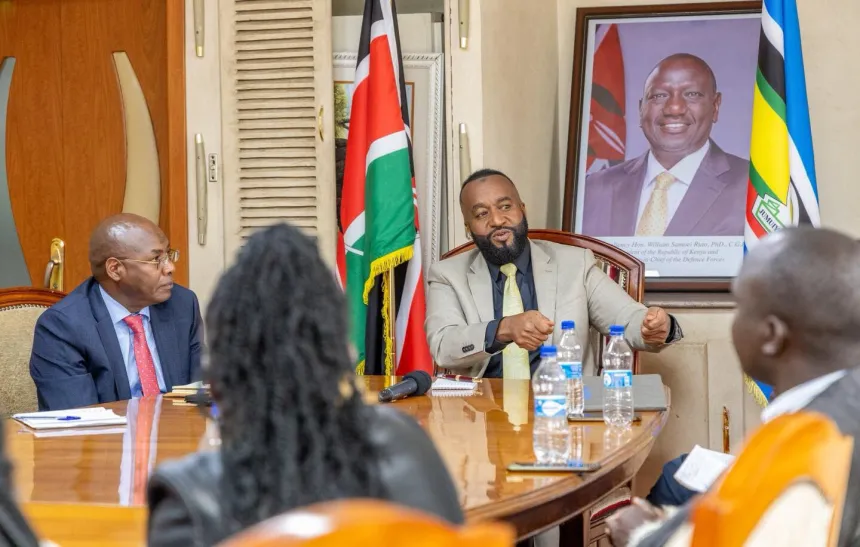Kenya and Uganda have signed a landmark fishing agreement aimed at resolving long-standing tensions around Migingo Island, a disputed territory in Lake Victoria. The pact, hailed as a breakthrough by Kenya’s Cabinet Secretary for Mining and the Blue Economy, Hassan Joho, introduces a joint fishing licence framework to streamline access to fishing grounds and reduce cross-border arrests.
“For years, our fishermen have suffered due to lack of clarity and constant arrests. This framework will bring order, protect livelihoods, and promote sustainability,” Joho said after a meeting with Uganda’s Minister of Fisheries, Frank Tumwebaze, in Nairobi.
The new memorandum of understanding allows licensed Kenyan and Ugandan fishermen to operate in agreed zones of Lake Victoria without fear of detention or seizure of equipment. The framework aims to curb illegal fishing while ensuring sustainable practices and improving rescue coordination across both nations’ waters.
Migingo Island, a tiny half-acre rock in the lake, has been a flashpoint in Kenya-Uganda relations since 2009. Ugandan authorities raised their flag on the island and began demanding fishing licences from Kenyan nationals, triggering years of diplomatic tension and frequent arrests of Kenyan fishermen.
“Going forward, Kenyan fisherfolk will have ease in accessing Ugandan waters in a manner that is clear and backed by a formal agreement,” Joho emphasized. The framework will also support transit arrangements for fish transport across Ugandan territory, according to Tumwebaze.
The meeting, attended by Kenya’s Principal Secretaries Betsy Njagi (Blue Economy and Fisheries) and Harry Kimtai (Mining), focused on licensing enforcement, sustainable fishing, and greater cooperation. Both ministers believe the joint licence will help de-escalate tensions and make Lake Victoria fishing operations more predictable and orderly.
There are ongoing discussions to include Tanzania in a broader regional framework, which would further harmonize enforcement, monitoring, and data-sharing across all three nations bordering Lake Victoria.
The agreement marks a step forward in regional integration and resource management, offering hope for thousands of fishermen who rely on the lake for their livelihoods. If implemented effectively, it could transform the long-troubled Migingo region into a model of cross-border cooperation.

